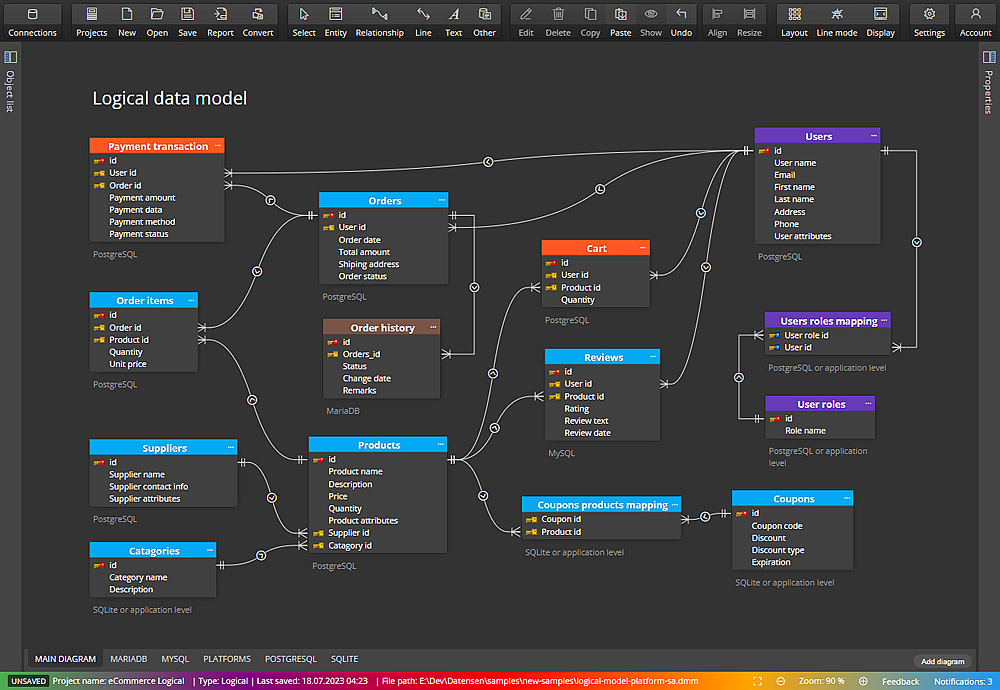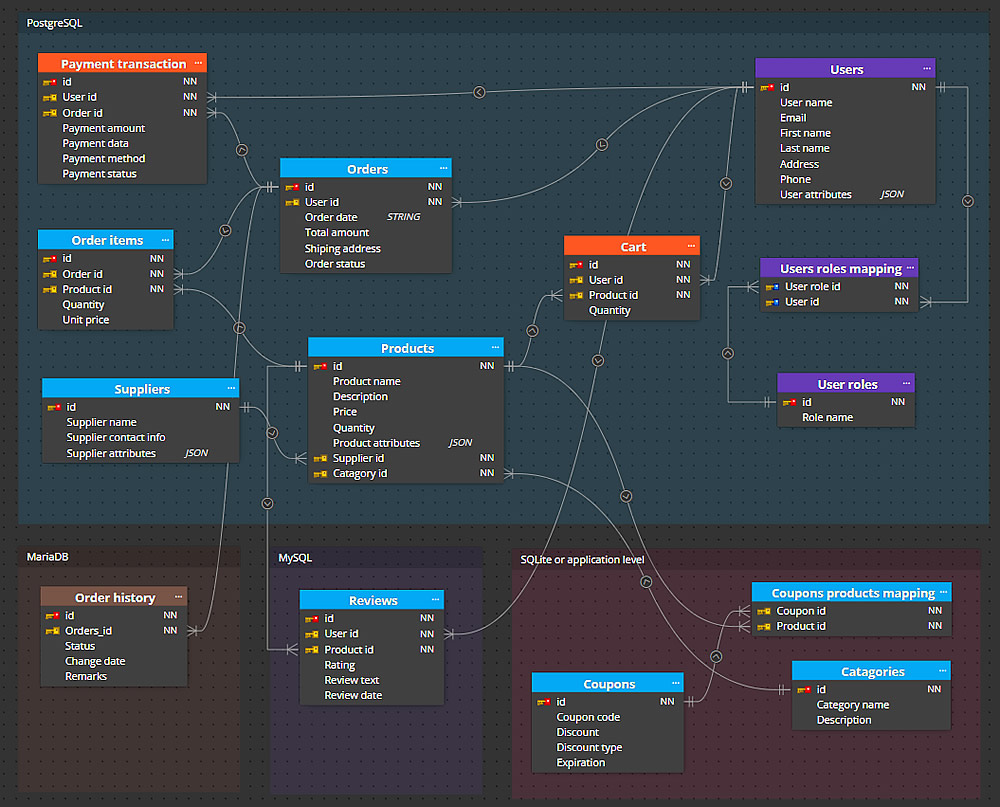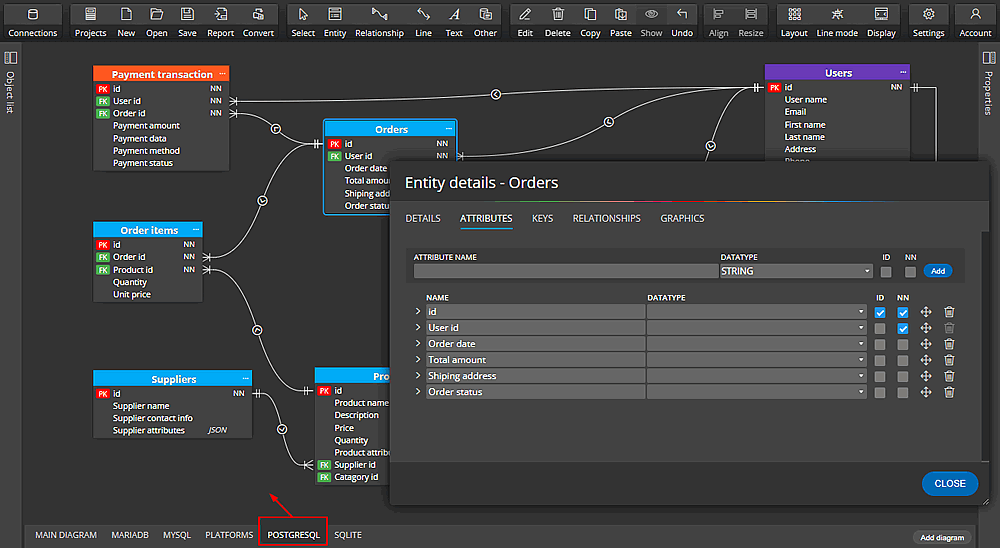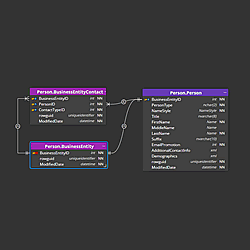In this blog post, I will discuss the benefits of using multiple database systems for an e-commerce project and designing the structure in a data modeling tool.
E-commerce is a complex and dynamic domain that requires high performance, scalability, security, and reliability from the data layer. However, no single database system can meet all these requirements perfectly. Therefore, it is often advantageous to use a combination of different database systems, each optimized for a specific aspect of the e-commerce domain.
Defining a logical data model in a data modeling tool
In Luna Modeler, you can easily design a logical model for your data structure. During the design process, you can define the main objects such as entities and relationships. Data types can be specified later.
To easily distinguish where the data will be stored, you can use descriptions and display these under each of the entities. In the following screenshot you can see the layout for storing data. Certain data will be stored in PostgreSQL, less important data will be stored in MySQL for example, and other elements can either be available in SQLite or at the application level.

Using subject areas
The use of descriptions is suitable for basic design, in the next phase of data modeling you can use other features of Luna Modeler, such as the subject areas. This figure shows a simple diagram with the distribution of entities by database type. Read more about Subject Areas.

Using Sub-Diagrams
And if you are working on a larger project, you may find it useful to create a sub-diagram for each target platform.

Converting the logical data model using CTRL+C and CTRL+V
Once the design is complete, you can convert the entire logical data model to the target platform, e.g. PostgreSQL, or you can select the entities you want to convert, use CTRL+C to insert them to the clipboard, and then create a new project for e.g. MariaDB and paste the copied objects into it.
Luna Modeler will automatically convert the objects and data types from the logical data model and create the objects in the current physical model.
Now let’s take a look at why working with multiple database systems.
Benefits of using multiple database systems
Improved performance
By using different database systems for different types of data, such as relational, document, key-value, graph, etc., you can leverage the strengths and avoid the weaknesses of each system. For example, you can use a relational database for transactional data that requires ACID guarantees, a document database or JSON format for product catalog data etc.
Enhanced security
By using different database systems for different data sensitivity levels, you can apply different security policies and mechanisms to each system. For example, you can use an encrypted relational database for payment data that requires strong encryption and auditing, a secured database for customer data that requires authentication and authorization, and a database for session data that requires minimal security.
Reduced complexity
By using different database systems for different data models, you can simplify the data access and manipulation logic in your application code. For example, you can use an object-relational mapping (ORM) framework like Sequelize for relational data that requires complex joins and transactions, a document-oriented API for document data that requires nested structures etc.
Conslusion
As you can see, using multiple database systems for an e-commerce project can bring many benefits to your application performance, security, simplicity as well as scalability. However, it also comes with some challenges, such as data integration, consistency, migration, and maintenance. Therefore, you should carefully evaluate your data requirements and choose the best combination of database systems for your project. Tools such as Luna Modeler, which allow you to design a data model, can greatly help you define the best data structure.
